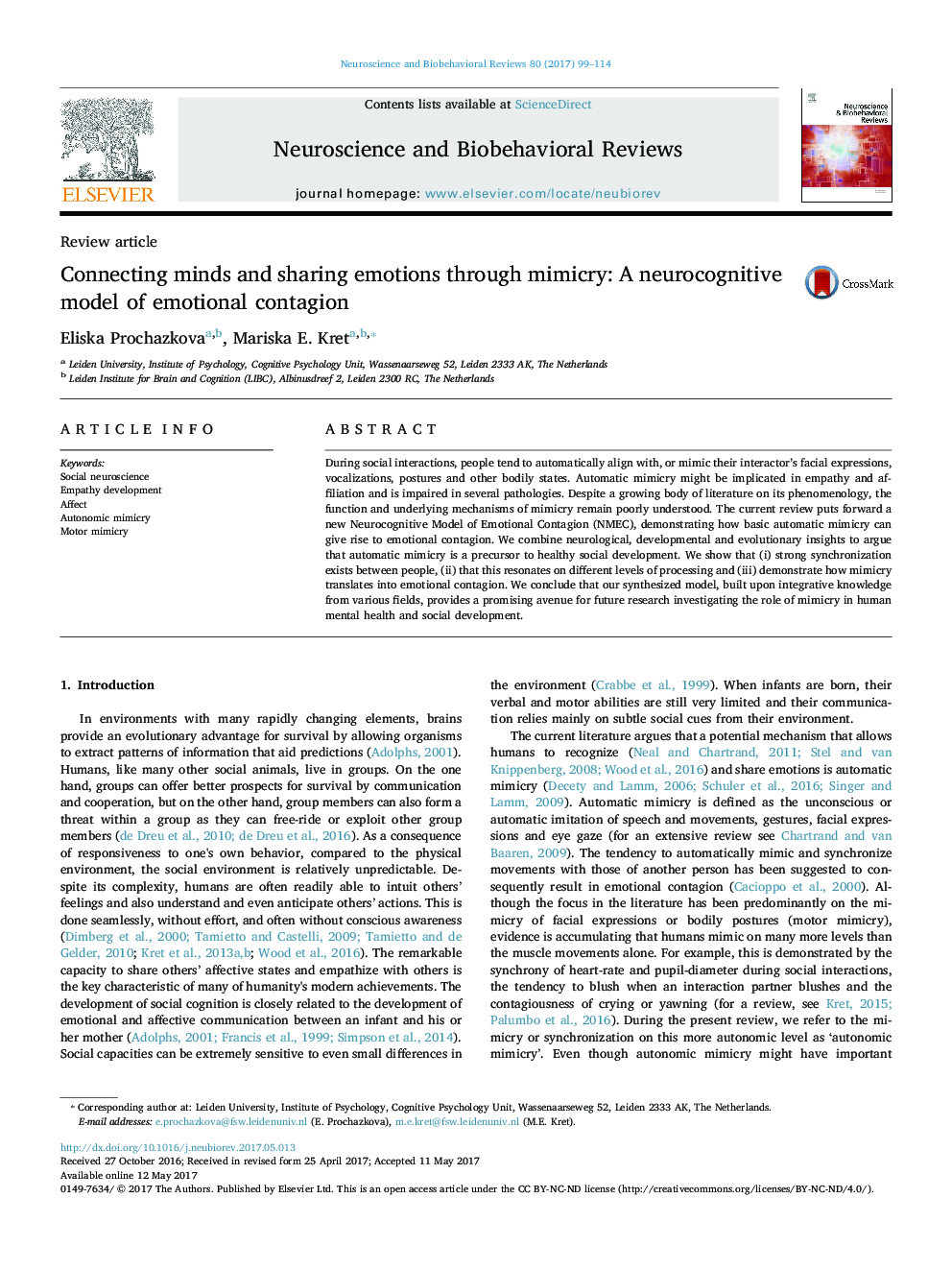| کد مقاله | کد نشریه | سال انتشار | مقاله انگلیسی | نسخه تمام متن |
|---|---|---|---|---|
| 5043437 | 1475292 | 2017 | 16 صفحه PDF | دانلود رایگان |
- Motor mimicry allows humans to recognize emotions and empathize with others.
- Autonomous mimicry is proposed as an alternative pathway to emotional contagion.
- A Neurocognitive Model of Emotional Contagion (NMEC) is proposed.
- The NMEC explains how empathy emerges between two interacting brains and bodies.
- The NMEC provides implications for human health and pathologies.
During social interactions, people tend to automatically align with, or mimic their interactor's facial expressions, vocalizations, postures and other bodily states. Automatic mimicry might be implicated in empathy and affiliation and is impaired in several pathologies. Despite a growing body of literature on its phenomenology, the function and underlying mechanisms of mimicry remain poorly understood. The current review puts forward a new Neurocognitive Model of Emotional Contagion (NMEC), demonstrating how basic automatic mimicry can give rise to emotional contagion. We combine neurological, developmental and evolutionary insights to argue that automatic mimicry is a precursor to healthy social development. We show that (i) strong synchronization exists between people, (ii) that this resonates on different levels of processing and (iii) demonstrate how mimicry translates into emotional contagion. We conclude that our synthesized model, built upon integrative knowledge from various fields, provides a promising avenue for future research investigating the role of mimicry in human mental health and social development.
Journal: Neuroscience & Biobehavioral Reviews - Volume 80, September 2017, Pages 99-114
